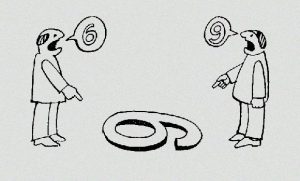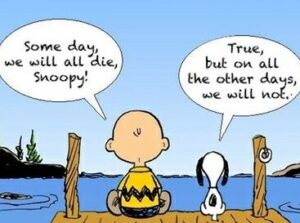Podcast: Play in new window | Download
 Transformation doesn’t change a thing. Without transformation you had your life and whatever was going on with it.
Transformation doesn’t change a thing. Without transformation you had your life and whatever was going on with it.
With transformation
With transformation you still have the same life and the same whatever’s going on with it (like I said, it doesn’t change a thing). What changes with transformation is the context.
 With transformation there is a dramatic shift in the context. The context in which you experience your life. The context in the context in which you experience your future, you experience your present, and you experience your past. And the shift is most dramatic in your past.
With transformation there is a dramatic shift in the context. The context in which you experience your life. The context in the context in which you experience your future, you experience your present, and you experience your past. And the shift is most dramatic in your past.
While transformation doesn’t change the past (and clearly, nothing does: what happened, happened), transformation has the extraordinary power to reach back into the past, and to re-contextualize the past.
You am looking back from the now moment, which is, when you compare it to what happened in the past, its that past’s future.
If and when that past remains the same, context-wise, nothing can and nothing will change in your present, in your now moment.
But if you manage to look at that past differently, i.e. create a different context for what happened, your now moment can shift dramatically…
The issue with the past is the context.
The context inside which your present is the way it is. The issue is that in the past you said ‘there is something wrong here, there is something wrong with me!‘.
The context therefore was that wrong… That wrong through which you saw what happened. It was your filter, it was your context.
The moment you manage to change the context of that past from wrong to ‘so what?!‘ or ‘it was what it was‘ or ‘I was the way I was‘ i.e. neutral, your present shifts. Who you are for yourself shifts. Who is going to do this moment and the next and the next moment will be DRAMATICALLY different.
It takes willingness to create a new context… because that old context, the wrong, justifies everything that you have ever done.
And for many people the justification is more important than life itself.
But if you are willing to create a new context, to see what happened through a different vantage point, you can start living a life that you love… a life you live powerfully.
With that wrong remaining: you can’t.
Life always unfolded just the way it unfolded.
There was never anything wrong with you, anything wrong with what happened, and anything wrong with ‘them‘. Even if what happened hurt. Even if what happened happened because you didn’t know, because you made a mistake, because your mother was overprotective, or it was a hot summer day and you couldn’t get out of the car.
There was never a place to get to. And there was never a thing to get, never to be different than you were. Things were the way they were, and you were the way YOU were… And that was always OK.
Not necessarily smart. Not necessarily brave. You were the way you were, and that was OK.
Yet the truth is that you considered yourself to be anything but OK.
And you have been sticking with that opinion ever since. And your life has been the proof… even though you meant it to be a fix to that wrong.
Because, as Einstein said, you cannot solve a problem that is not real.
Your story is a real story, but your problem, that you were somehow wrong isn’t real. It was an opinion… not reality.
And therefore you cannot solve it. Cannot fix it.
Spending your whole life on something that was never real is what your life has been.
What you didn’t get, what was missing at the time, was the context in which you experienced yourself wrong. At the time your attention was on the foreground, on what was happening, and you were oblivious of the context… the context you unwittingly set, that there was something wrong there.
Today, looking back at what happened, you can pay attention to the context… and therefore you can change it. You can see that younger you wasn’t getting it. And loves him/her, befriends him, and support him without protecting him from any of the consequences of his action. And you can wait patiently and with compassion for him to inevitably, inexorably realize he is and always was OK all along.
That there was never anything wrong with him, or even with his behavior. That there was and there is nothing to fix.
Now, let’s look at that ‘there was never anything wrong with him‘ statement, shall we?
That said, there was never anything wrong with him doesn’t mean everything you did was good. That would make ‘being OK‘ a value judgement.
Being OK, means you did what you did, and you were what you were, and that’s what you did, and that’s what you were.
And that is what it means to be OK. That makes being OK a space ie a context to view everything from.
That is what transformation is. Not passing a value judgment. Not re-coloring what you did, or how you were. Instead changing the space inside which you did what you did, you were the way you were.
Instead of changing that, you change the space, you change the context. And you see that none of the past changed, none of the past is colored beautiful, and yet everything changed with the context changing.
PS: Your base attitude, your attitude to yourself, to others, to life…
Your base attitude, your attitude to yourself, to others, to life has grown out of that original (old) incident when your context was that there is something wrong with you.
That original wrong gives you the attitude of stingy, the attitude of a fixing machine, the attitude of an ‘I have to be right‘ machine, the attitude of a ‘I am special‘ machine.
The ‘I am special‘ machine is the worst machine, in my humble opinion. Because like the T-shirt says on the side: your machine doesn’t want you to do what you need to do to get what you want.
And that leaves you with near-zero worth a damn score… regardless of your natural abilities.
PPS: Your attitude is 90% of your success or your failure.
So attending to your attitude, and transforming it into an attitude that allows you to get what you want should be a priority, wouldn’t you say?
PPPS: I just found someone who did not make himself wrong in the original incident.
So if you don’t recognize yourself in the article above, then you are one of those people, who fancy themselves a victim. About 20% of the whole humanity. Toxic through and through.
Can they, regardless, transform the original incident, and therefore their present and future? Yes, but less likely. 29, 38, 30, 28, 19, 27 are more likely than others to belong to this minority.
For them to see that they caused what happened, i.e. taking responsibility is the transformation they need to be able to change their present and their future.
In the Attitudes workshop we looked at context from the point of view is that an attitude is also a context. And we discovered what in most cases our attitude has been that life isn’t working as well as it could or maybe should.
You can get the recording of the workshop here…
